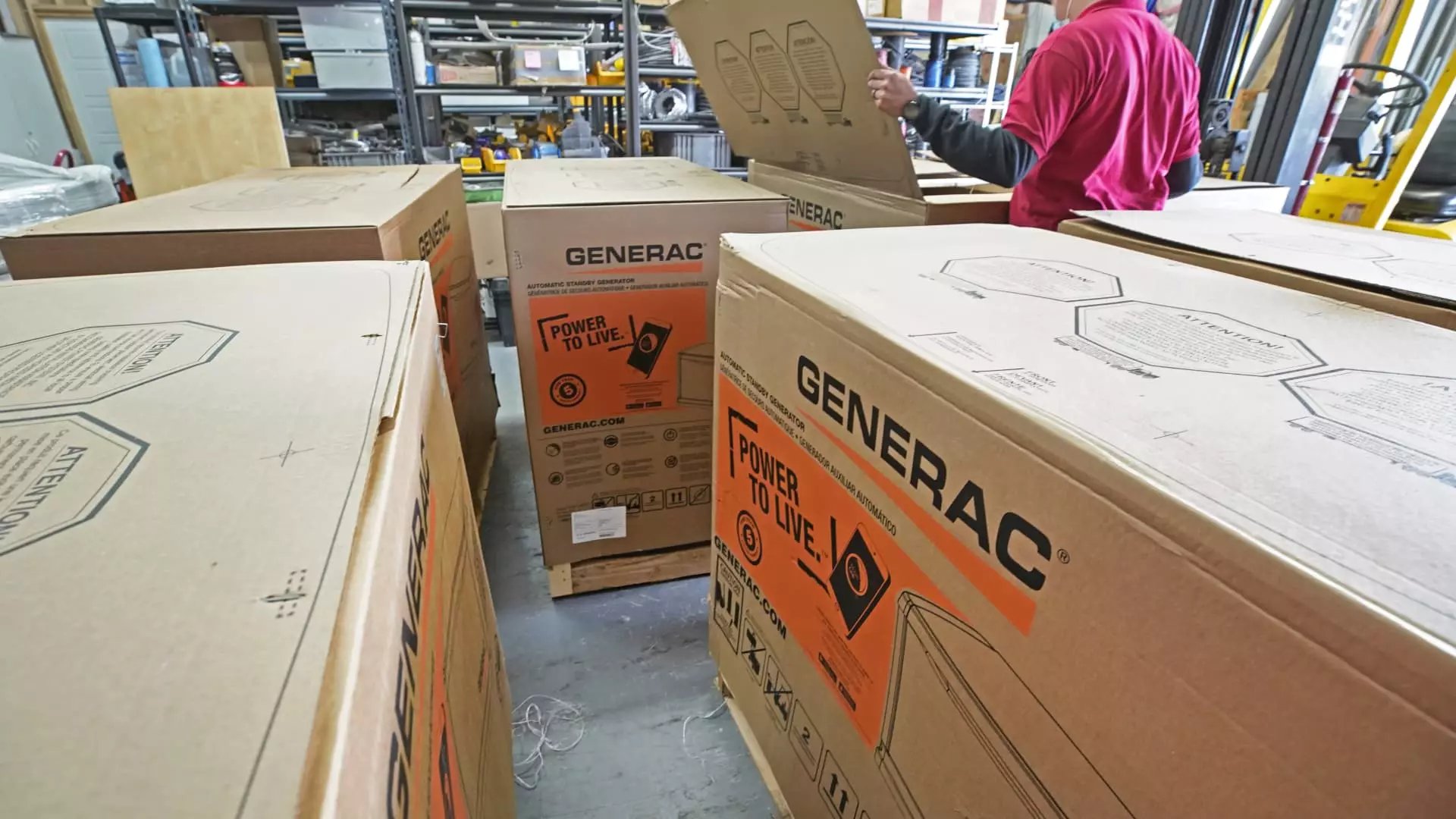As sweltering temperatures grip vast regions of the United States, a perceptible shift is occurring in the energy market. This year, the consequences of climate change and the limitations of our aging power grid are starkly evident. The scorching heat, which has left over 130 million Americans seeking relief, is not just a nuisance—it’s a catalyst for a serious surge in demand for backup energy solutions. Among the most notable beneficiaries is Generac, the powerhouse behind backup generators, which has experienced a remarkable 12% increase in its stock value over the past week alone, marking an upward trajectory not seen since late 2024.
The health of our energy infrastructure is under immense scrutiny as extreme weather events, from heatwaves to hurricanes, become increasingly routine. The National Weather Service has raised alarms, establishing heat advisories in the Mid-Atlantic and along the Southeastern coast. Investors, clearly galvanized by forecasts of an above-average Atlantic hurricane season, are rushing to secure stakes in companies that are poised to meet the growing need for resilient power supplies. While the trend shows promise for investors, it illuminates an uncomfortable truth regarding our preparedness for climate change-induced challenges.
The Flimsy State of America’s Power Grid
It’s no secret that the U.S. power grid is like a precariously stacked house of cards, increasingly vulnerable to the whims of nature. Research indicates that the risk of power outages resulting from hurricanes could skyrocket by over 50% in the coming years—an unsettling prediction fueled by the realities of climate change. This is a wake-up call. As institutions like the Pacific Northwest National Laboratory outline the interlinked challenges of our energy grid and climatic threats, it becomes undeniable that there are pressing systemic issues at play.
Generac’s CEO, Aaron Jagdfeld, has articulated the growing concern facing our infrastructure, stating that both climatic anomalies and the burgeoning need for data centers are placing a significant burden on our system. This is a critical juncture—a moment where the conversation must shift from reactive measures to proactive strategies. The acknowledgment that “this is only going to get worse” resonates with an urgency that we cannot afford to ignore.
Investors Pivoting: The Utility Sector’s Bright Future
While the current climate is undeniably challenging, it also creates fertile ground for investment. Analysts from Bank of America project a robust growth rate of 2.5% in electrical demand through 2035, driven by several factors including the surging reliance on technology and cooling systems from firms like Trane Technologies. This expected growth is not just good news for investors; it reflects a critical need to strengthen our energy infrastructure.
Utility companies find themselves in an intriguing position. Although many have been slow to implement the necessary modernization of their services, those that do stand to benefit handsomely from the anticipated demand surge. The likes of Constellation Energy and Vistra are well-positioned to see improved margins as data center contracts trickle in. However, caution is warranted, as analysts are still exercising selectiveness within the sector, favoring companies that show potential for outperforming their competitors in the upcoming months.
A Call for Systemic Change
Within this landscape, a larger conversation must unfold about how we can fundamentally alter our approach to energy consumption and production. The impending climate crisis offers an opportunity — not only for investors but for policymakers, engineers, and innovators alike. We need a vigorous focus on renewable energy sources, advanced technological integrations, and a comprehensive reformation of our grid.
Failure to address these challenges may lead to not just inconveniences but catastrophic outages. Climate change is not waiting for us to catch up; it is already manifesting in increasingly severe weather patterns. It’s imperative that we react not only with economic foresight but with a commitment to sustainability and resilience.
Investing in Generac and similar companies may provide immediate benefits in a heated market. Yet, unless we confront the underlying issues plaguing our energy systems, we may find ourselves in a perpetual cycle of disaster, scrambling for solutions that remain frustratingly out of reach. The imperative is clear: we must cultivate a future that prioritizes both preparedness and innovation in our reliance on energy. The time for change is now.

